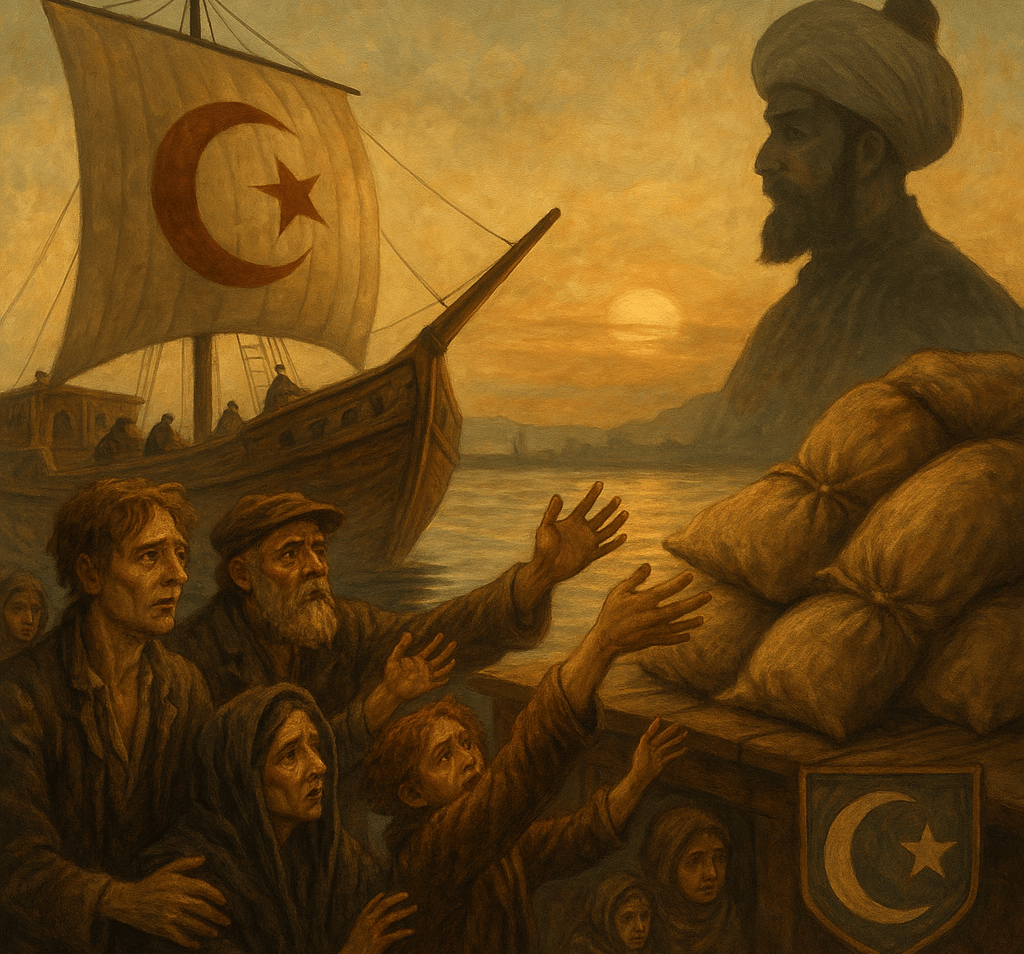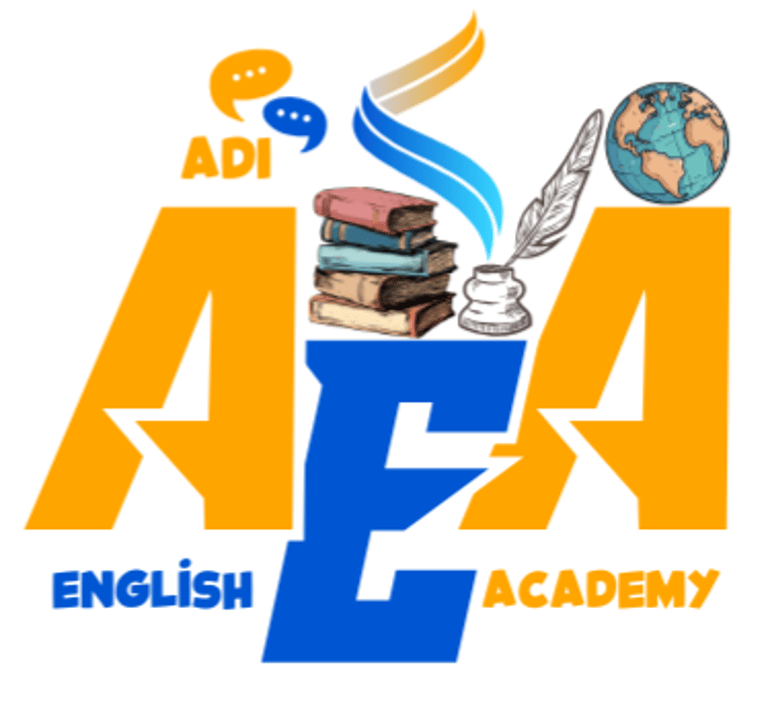How the Ottoman Sultan Saved Ireland During the Great Famine of 1847
Discover the forgotten story of Sultan Abdülmecid I, who helped Ireland during the Great Famine. Learn how the Ottoman Empire sent aid when others turned away.
ENGLISH THROUGH HISTORY
Adi English
4 min read


🌍 Story 1: The Ottoman Sultan & The Irish Famine
LEVEL 3 – Advanced
Length: ~527 words
In the mid-19th century, Ireland suffered one of the greatest tragedies in its history: the Great Famine of 1845–1852. The potato, which had become the staple crop for much of the rural poor, was struck by a plant disease known as blight. Harvest after harvest failed. Families who relied almost entirely on potatoes suddenly faced empty fields and empty tables. Between 1845 and 1852, more than one million people died of starvation and disease, while another million emigrated, many of them to America.
Although Ireland was part of the British Empire, the relief provided from London was widely criticized. British policies favored market principles over urgent humanitarian action. Food exports from Ireland actually continued during the famine, even as local families starved. Official aid was inadequate, limited, and often tied to strict conditions that humiliated those who received it. For many Irish people, this added a deep sense of injustice to their suffering.
News of the disaster spread across Europe and beyond. In Istanbul, Sultan Abdülmecid I of the Ottoman Empire was moved by the reports of Irish misery. Accounts say he initially wished to donate £10,000, an enormous sum for the time. However, Queen Victoria had contributed only £2,000. According to tradition, the British crown requested that the Sultan not “outshine” her gift. Out of diplomatic respect, Abdülmecid reduced his official donation to £1,000.
Yet the Sultan did not stop there. Local Irish sources recall that he quietly arranged for three Ottoman ships filled with grain to sail to Ireland. These ships docked in the port of Drogheda, north of Dublin, bringing food directly to starving communities. Because the aid was said to be delivered discreetly, official records are scarce. But Irish oral tradition, local histories, and cultural memory have preserved the story for generations.
This act of generosity became a symbol of unexpected solidarity between two distant peoples. In gratitude, the town of Drogheda later incorporated the Ottoman crescent and star into its coat of arms, where it remains today. The image of the crescent above the Irish harp reminds locals of the help they received from across the seas.
The legacy of this episode goes beyond a single act of aid. It reminds us that compassion often arrives from unexpected places. While powerful neighbors hesitated or acted with calculation, a Muslim ruler from a distant empire reached out to help a Christian nation in crisis. The story has since been retold as an example of humanity transcending politics, religion, and geography.
In modern times, some commentators have drawn a line from this memory to Ireland’s support for Palestine. Just as the Irish once suffered famine, oppression, and neglect under imperial rule, many feel a bond with others experiencing hardship. Solidarity, in this sense, becomes a way of honoring the past while shaping the future.
The Great Famine devastated Ireland, changing its population, culture, and history forever. But within the darkness of those years, the gesture of Sultan Abdülmecid I remains a small but shining light. It is remembered not only as a charitable donation but as proof that empathy can cross borders and that even the smallest bridge of kindness may endure across centuries.
Vocabulary (10 words)
Starvation—suffering or death caused by extreme lack of food.
Used in serious contexts like war or famine.
Example: Many civilians died of starvation during the siege.
Student example: _____________________
Staple – a basic or main food in a diet.
Commonly used for rice, wheat, or potatoes.
Example: Rice is the staple food in many Asian countries.
Student example: _____________________
Adequate – good enough in amount or quality.
Often used negatively when something is not enough.
Example: The aid was not adequate for the number of refugees.
Student example: _____________________
Compassion—sympathy and care for someone’s suffering.
Used for kind and empathetic actions.
Example: The nurse treated patients with great compassion.
Student example: _____________________
Diplomatic—related to relations between governments.
Can also mean careful, polite in communication.
Example: The minister gave a diplomatic answer to avoid conflict.
Student example: _____________________
Discreetly—quietly, without attracting attention.
Used for secret or careful actions.
Example: She discreetly left the meeting without disturbing others.
Student example: _____________________
Crown—the monarchy or ruler of a country.
Used symbolically for kings, queens, or royal authority.
Example: The crown opposed giving more power to parliament.
Student example: _____________________
Solidarity—unity or shared support between people or groups.
Stronger use than just “help”; means standing together.
Example: Workers showed solidarity by striking together.
Student example: _____________________
Legacy—something remembered or passed down from the past.
Can be cultural, political, or personal.
Example: The scientist’s legacy continues through her discoveries.
Student example: _____________________
Symbolic—representing something larger than itself.
Used for gestures, actions, or signs with deeper meaning.
Example: The handshake was symbolic of peace.
Student example: _____________________
Exercises (Level 3)
Comprehension:
What caused the Great Famine in Ireland?
How many people died or emigrated?
Why did the Sultan reduce his donation?
What did the Ottoman ships bring to Drogheda?
Why is the story remembered as symbolic?
Multiple Choice:
The main staple food in Ireland at the time was:
a) Wheat b) Potatoes c) Rice d) Corn
Queen Victoria gave:
a) £1,000 b) £2,000 c) £10,000 d) £5,000
The ships secretly arrived in:
a) Dublin b) Drogheda c) Belfast d) Cork
Which symbol was added to Drogheda’s coat of arms?
a) Star of David b) Crescent and star c) Shamrock d) Eagle
Ireland’s support for Palestine today is sometimes connected to:
a) Britain’s rule b) Ottoman ships c) Russian support d) American aid
Fill in the Blank:
The famine caused mass _______.
Potatoes were the _______ food of the Irish people.
The British aid was not _______.
The Sultan acted _______ to send ships.
The Irish remember this as part of their _______.
True/False:
The famine killed more than one million people.
The Sultan officially donated £10,000.
Drogheda remembers the event in its coat of arms.
Britain welcomed Ottoman aid openly.
Ireland connects this memory with its solidarity for Palestine.
Discussion:
Why do you think the British crown wanted to limit the Sultan’s donation?
What does this story teach us about compassion between nations?
How can small gestures have big symbolic meaning?
Do you think this memory influenced Ireland’s politics later? Why or why not?
Can you think of another example when countries helped each other in unexpected ways?
